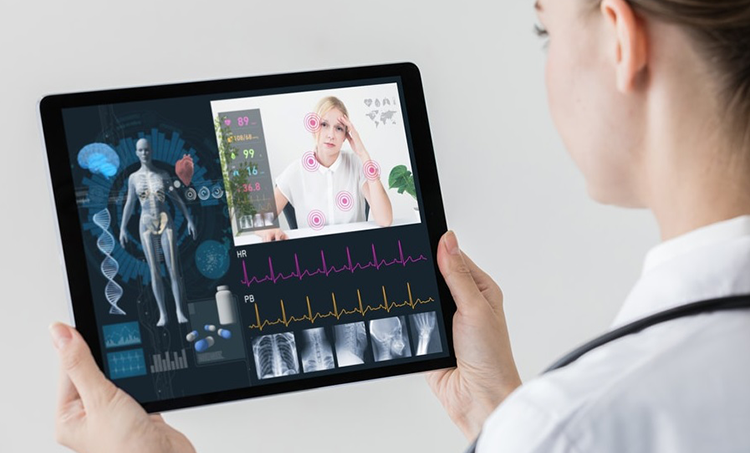

Connecting Health: Telehealth for Remote Wellness
In an era defined by technological innovation, telehealth has emerged as a transformative force in the realm of healthcare. This powerful approach not only bridges geographical gaps but also revolutionizes the way individuals access and receive medical care, especially in remote areas.
Breaking Barriers with Telehealth
Telehealth is breaking down traditional barriers to healthcare access, particularly in remote regions where medical facilities may be scarce. Through virtual consultations, patients can connect with healthcare professionals without the need for physical proximity. This not only enhances convenience but also ensures that individuals in underserved areas can receive timely medical attention.
The Convenience of Virtual Consultations
One of the primary advantages of telehealth is the convenience it offers. Patients no longer need to travel long distances for routine check-ups or minor health concerns. Virtual consultations enable individuals to connect with healthcare providers from the comfort of their homes, saving time and resources. This convenience is especially crucial for those residing in remote areas with limited access to medical facilities.
Remote Monitoring for Chronic Conditions
Telehealth goes beyond virtual consultations; it extends to remote monitoring of chronic conditions. Wearable devices equipped with health sensors can collect real-time data, allowing healthcare professionals to monitor patients’ health remotely. This proactive approach not only improves the management of chronic conditions but also reduces the need for frequent hospital visits.
Telehealth’s Role in Mental Health Support
The impact of telehealth extends to mental health support, a critical aspect of overall well-being. Individuals in remote areas, where mental health resources may be scarce, can access virtual counseling and therapy sessions. Telehealth platforms provide a lifeline for those grappling with mental health challenges, offering timely support and intervention.
Educating and Empowering Communities
Telehealth plays a crucial role in educating and empowering communities about health and wellness. Through virtual seminars, webinars, and online resources, healthcare professionals can disseminate information to remote areas. This knowledge empowers individuals to take proactive steps towards better health, leading to improved overall community well-being.
Telehealth’s Impact on Emergency Response
In remote regions, timely emergency response can be challenging due to the distance from medical facilities. Telehealth interventions, such as virtual triage and consultations during emergencies, can provide critical support until physical assistance arrives. This real-time connection between patients and healthcare professionals can make a significant difference in urgent situations.
Overcoming Technological Barriers
While telehealth brings immense benefits, addressing technological barriers is essential. In some remote areas, access to reliable internet connectivity may be limited. Initiatives focused on improving digital infrastructure are crucial to ensuring that telehealth reaches every corner of the globe, leaving no one behind in the quest for accessible healthcare.
The Future Landscape of Remote Health
The future landscape of remote health is undoubtedly intertwined with the evolution of telehealth. Advancements in technology, coupled with a commitment to inclusivity, will shape a healthcare system where geography is no longer a hindrance to quality medical care. As telehealth continues to evolve, its impact on remote health is poised to redefine the entire healthcare paradigm.
Telehealth for Remote Health: Unleashing Possibilities
To explore the endless possibilities of telehealth for remote health, visit BMA Unleash. This platform is dedicated to unleashing the full potential of telehealth, offering insights, resources, and the latest developments in the world of remote healthcare.
Conclusion: A Connected Future for Healthcare
Telehealth is not merely a technological advancement; it represents a paradigm shift in how healthcare is delivered and accessed. The ability to connect healthcare professionals with individuals in remote areas is a powerful tool for promoting global health equity. As telehealth continues to gain momentum, it holds the promise of creating a connected future where quality healthcare is accessible to all, regardless of geographical location.







:max_bytes(150000):strip_icc()/About-A53-YChestPress-719-c0225c885f6347e1a7c52bab2fdc2bb8.jpg)

